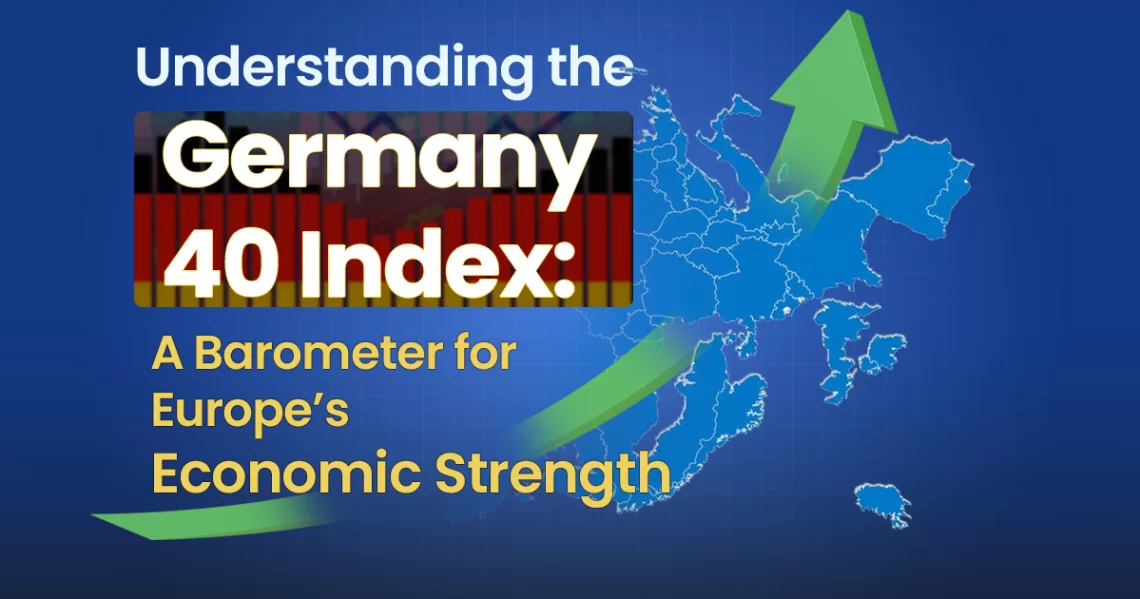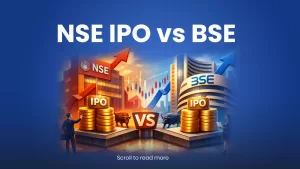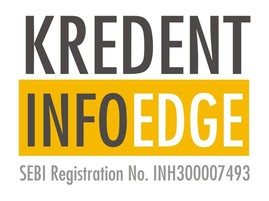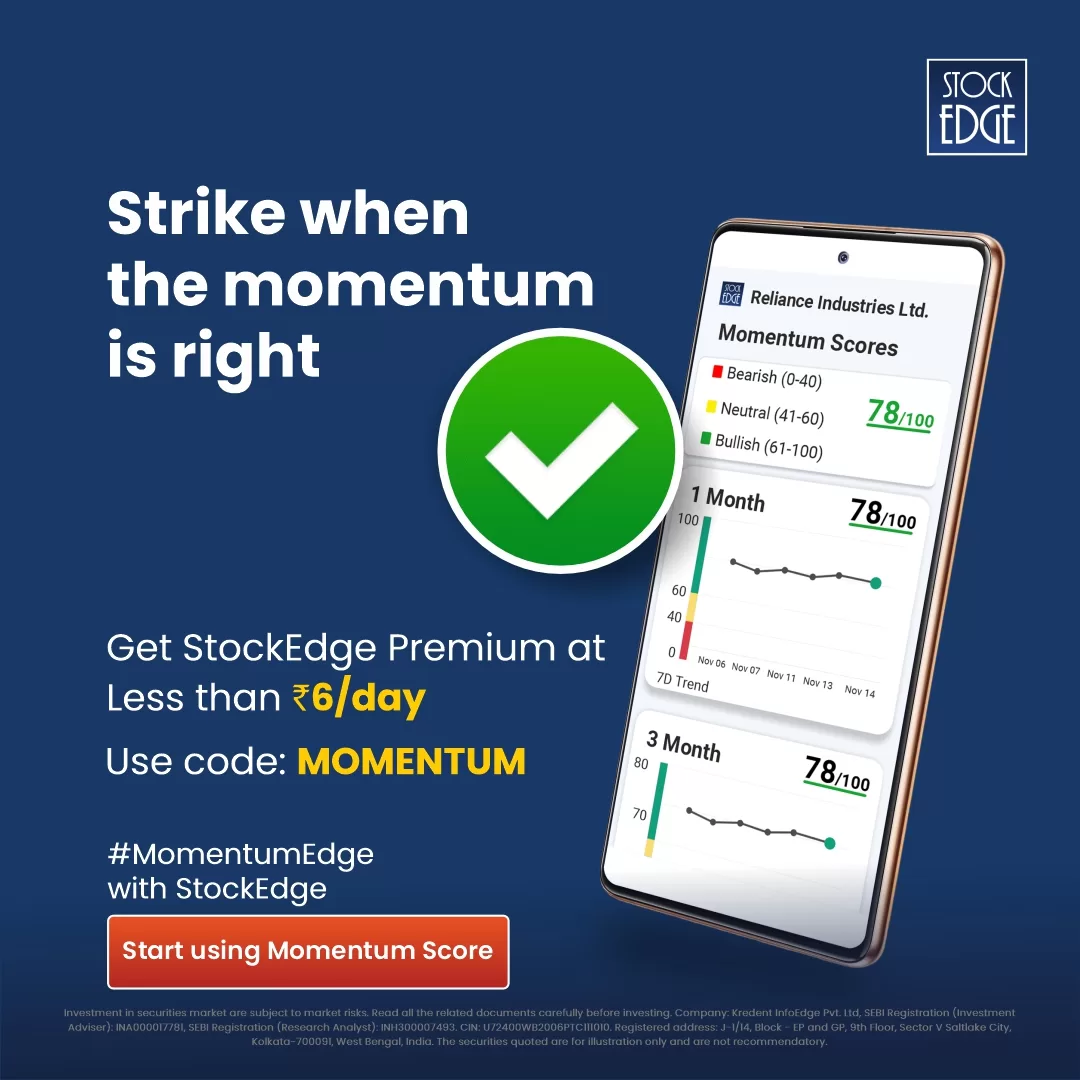Key Takeaways
- What is the Germany 40 Index:Formerly known as DAX 30, the Germany 40 Index includes the top 40 blue-chip companies on the Frankfurt Stock Exchange, reflecting the health of Europe’s strongest economy.
- Key Sectors It Represents:The index spans industries like automotive, chemicals, technology, and pharmaceuticals, making it a solid proxy for both German and pan-European industrial performance.
- Why It Matters for Global Investors: As Europe’s most watched index, Germany 40 influences global markets. Movements in this index can impact FII sentiment and global asset allocation strategies.
- Opportunities for Indian Investors: Through international mutual funds, ETFs, and trading platforms, Indian investors can tap into German equities, diversifying beyond domestic markets.
- Risks Associated: Currency fluctuation, geopolitical tension, and export dependency are key risk factors. Being export-heavy, the index is sensitive to global demand trends.
Table of Contents
Figuring out how to adopt winning positions in the market and make investments that will lead to long-term profits is something we all focus on, but saying it and doing it are two very different things. What you need are indicators and indices that describe how the markets are moving and what the global economy is doing at any particular time.
The Germany 40 Index (DAX 40) is just such a metric, and it is used by smart investors all over the world who want to be able to increase the accuracy of their predictions.
What Is The Germany 40 Index?
The Germany 40 index is a well-established, highly-regarded stock market index that is designed to track the performance of the 40 biggest German companies. To make it into the index, these companies have to be both actively traded and listed on the Frankfurt Stock Exchange. This allows the index to serve as an accurate indicator of the performance of the wider German economy and to act as a reliable benchmark for the European stock market.
A free-float market capitalization approach is used to calculate and compile the index, allowing it to take into account the impact of publicly traded shares on the German economy. One thing to be aware of is that, because of this approach, the index is unable to use data from privately held shares that are not being actively traded.
Germany 40 Composition & Relevance
The size of the 40 German countries is judged by a combination of their liquidity and market capitalization, allowing the index to lean towards highly valuable companies with the potential to move the market. As such, it currently represents around three-quarters of the market capitalization of all of the stock corporations that are currently listed in Germany.
Germany has long been seen as the economic powerhouse of the European continent — something that has become even more important since Brexit — and is a barometer for the performance of the rest of the continent. History shows that a strong German economy drives up imports from other countries into Germany, as well as exports from Germany across European borders.
Why Traders Follow The Germany 40 Index
Traders typically view the Germany 40 as a way to assess current investor confidence in the German market and the wider European economy. Some will say that it is purely an economic indicator, but understanding that all of the trades that are placed using the stocks of the 40 companies that comprise the index are driven by an element of human psychology is important.
If the index continues to fall, this is a strong indicator that investors are losing confidence. You then get a reduced number of trades from traders who are unwilling to be as adventurous and progressive in the market as they otherwise would be.
Traders who pay a great deal of attention to the DAX 40 typically do so with the aim of trading CFDs, ETFs, options, and mutual funds. There are a number of key drivers of the performance of the index, namely:
- Corporate Earnings Reports: If the 40 companies that make up the DAX 40 post strong earnings over the last quarter, the index will typically rise, and traders will become more optimistic about the next quarter. Likewise, if the growth of some of the companies is slow, the index will be pulled back, and traders will typically look to consolidate their positions with a view to reducing their new risk exposure
- Currency Fluctuations: When the exchange rate of the Euro changes, the spending power of German companies will change. Things get increasingly complicated when German companies sell to countries outside of the eurozone and get paid in foreign currencies. Even if the exchange rates are favorable, exchange rate volatility may cause a fall in the index as a result of uncertainty
- Global Events: Trade agreements, wars, natural disasters, and changes of leadership in various countries all have the potential to move the DAX 40. The interconnected nature of the global economy and the length of supply chains mean that German companies virtually never do business in isolation within their own borders
- Economic News: Inflation figures, updates to the interest rates set by central banks, and changes to GDP forecasts can also change the index. Many of these announcements are scheduled months in advance, allowing strategic traders to develop new pricing strategies so that they can capitalize on early market momentum
A strategic view of each of these classes of factors allows for the development of a variety of trading and investment strategies so that the trader is ready for all of the likely eventualities. Due to the complex nature of the behavior of these types of indices, a proactive approach to learning and improving knowledge that involves analysing historical data and past performance will be highly beneficial.
Capitalizing On Germany 40 Opportunities
Platforms such as ThinkMarkets allow savvy traders to make smart moves quickly and efficiently so that they can profit from market volatility. Knowing when news events and changes in economic indicators are going to cause volatility in the market is essential when you want to be able to adopt winning positions before the vast majority of the crowd has shown their hand. As every skilled trader knows, a volatile market often requires a higher level of self-discipline and emotional control because of the pressure that arises when prices rapidly rise and fall. Decisions that combine well-established strategies with careful analysis of the Germany 40 will be the most effective in this case.
The Last Word
The Germany 40 index is one of the most trusted and reliable indicators of the performance of the German economy and the wider European stock market. By focusing on the 40 largest publicly traded companies in Germany, the index provides clarity about the aggregated performance of much of Germany’s industrial, technological, and engineering heartland. Exactly what every experienced trader wants to hear when it’s time to focus on making smart moves and adopting strategic positions that will lead to long-term profits and above-average returns from the market.










